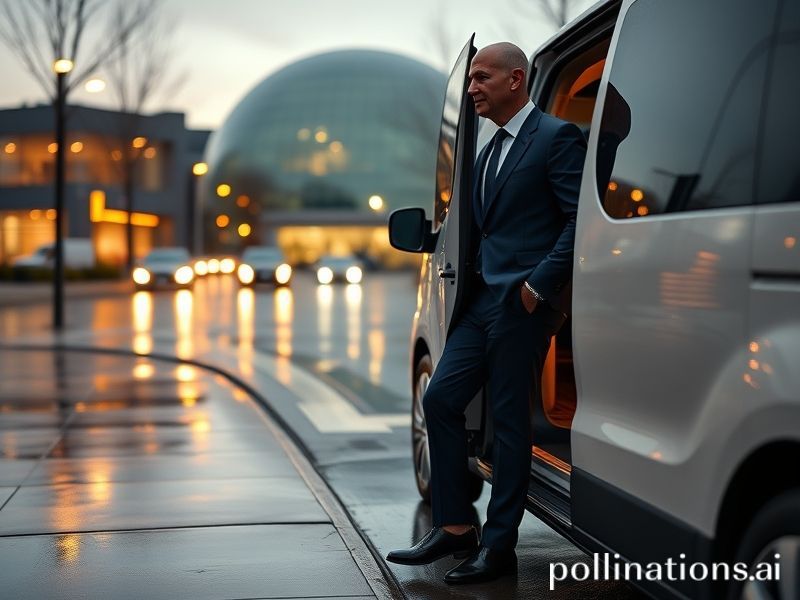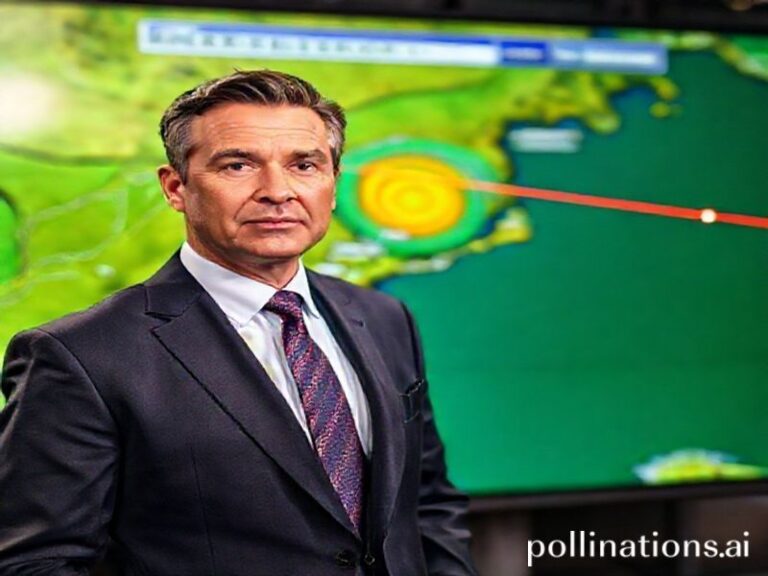jeff bezos
Jeff Bezos, the man who turned a modest Seattle garage into a global empire so vast it makes the East India Company look like a weekend lemonade stand, is still very much the gravitational center of Planet Capitalism—even after stepping down as CEO of Amazon. From the vantage point of a world that can’t decide whether he’s a visionary or a Bond villain on sabbatical, Bezos remains the yardstick by which we measure how far ambition can outrun morality while still being applauded in shareholder meetings.
Take a spin around the globe and you’ll find Bezos’ fingerprints on everything from the last-mile delivery guy sweating through Jakarta traffic with your knock-off AirPods to the cloud servers humming beneath a Scandinavian town hall where local taxes are computed—ironically—on an Amazon Web Services stack. In Brussels, regulators clutch their antitrust paperwork like garlic against a vampire, hoping to keep the marketplace from becoming a single “everything store” run by one very buff astronaut. Meanwhile, in Shenzhen, factory foremen set production quotas for the next Alexa-enabled toilet brush because the algorithm said “bidet curiosity” is trending in Ohio. The world spins; Bezos monetizes the centrifugal force.
It’s tempting to dismiss the man as a meme in aviator shades and a cowboy hat, but that would ignore the geopolitical aftershocks. When Amazon’s second headquarters sweepstakes turned entire U.S. cities into shameless contestants on “Who Wants to Woo a Billionaire,” capitals from Toronto to São Paulo took notes. Today, every developing nation with a fiber-optic cable and a dream is crafting “special economic zones” to lure the next Bezos—usually by promising tax holidays longer than most marriages and labor laws looser than a conspiracy subreddit. The result: a race to the bottom wearing a smiley-face emoji, sponsored by same-day delivery.
And then there’s space. Blue Origin, Bezos’ personal escape pod for the human species or at least for the species that can afford the ticket, now launches from a West Texas ranch with the regularity of a Tokyo commuter train. While European governments argue over carbon budgets and African nations drown in first-world plastic waste, Bezos casually fires rockets that leave contrails shaped suspiciously like middle fingers. The symbolism isn’t lost on anyone watching from the Maldives as another island sinks beneath rising seas. “Save the planet by leaving it” is either brilliant marketing or the most expensive mid-life crisis ever documented; possibly both.
Of course, critics will point to the warehouses where bathroom breaks are timed like Olympic sprints, or to the small matter of Amazon paying laughably little tax in jurisdictions where it rakes in billions. Yet consumers—myself included—still click “Buy Now” at 2 a.m., proving that hypocrisy, like Prime shipping, is free if you’re willing to overlook the hidden costs. In that sense, Bezos didn’t just revolutionize commerce; he turned moral compartmentalization into a global subscription service. Auto-renewal is mandatory.
The broader significance? Bezos has become the Rorschach test for 21st-century capitalism. To some, he’s the avatar of innovation, proof that a single human can still bend the arc of history with enough leverage and a willingness to ignore polite opinion. To others, he’s the ghost in every self-checkout kiosk, the reason your local bookstore now sells scented candles instead of literature. Either way, the world is reorganizing itself around his algorithms, and complaining about it on Twitter only makes Jack Dorsey’s stock go up—another victory for the shareholder class.
So here we are, orbiting the sun on a planet where one man’s smile can move markets, shift governments, and redefine gravity itself—at least for the 90 seconds it takes his rocket to cross the Kármán line. Whether that’s progress or punchline depends on which side of the delivery van you’re standing. Just remember: the drones are watching, and they know exactly what you ordered last summer.







